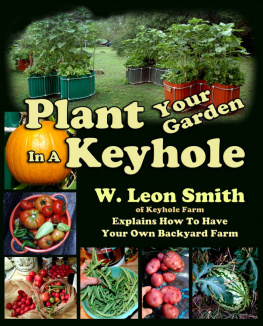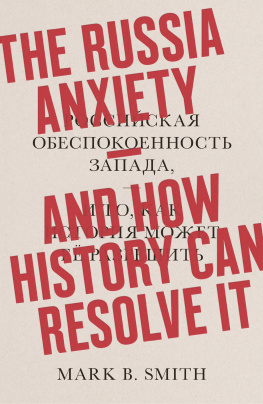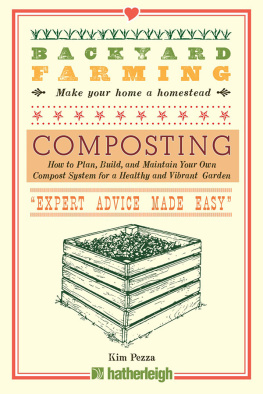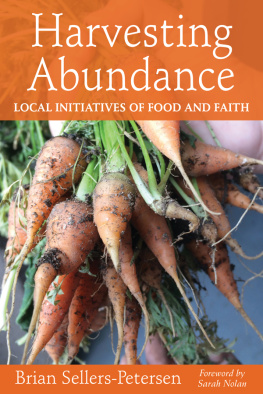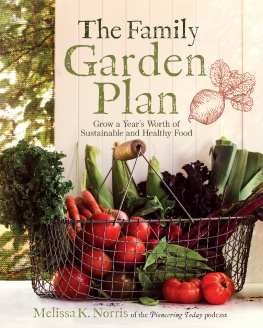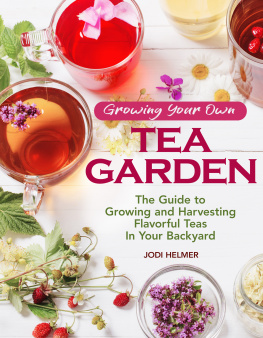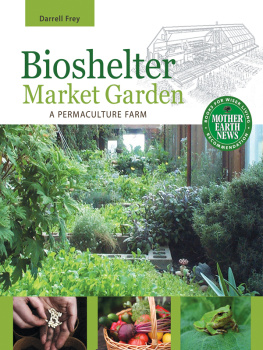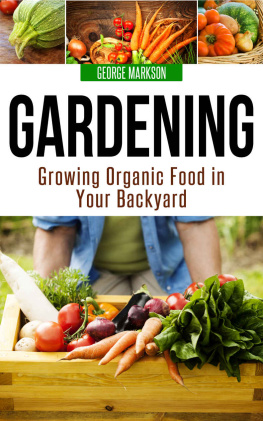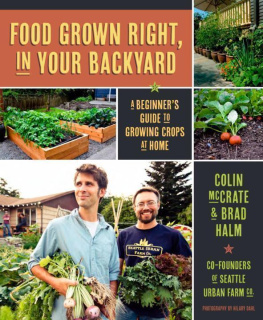Smith - Plant Your Garden In A Keyhole
Here you can read online Smith - Plant Your Garden In A Keyhole full text of the book (entire story) in english for free. Download pdf and epub, get meaning, cover and reviews about this ebook. year: 2015, publisher: Smith Media, Inc., genre: Detective and thriller. Description of the work, (preface) as well as reviews are available. Best literature library LitArk.com created for fans of good reading and offers a wide selection of genres:
Romance novel
Science fiction
Adventure
Detective
Science
History
Home and family
Prose
Art
Politics
Computer
Non-fiction
Religion
Business
Children
Humor
Choose a favorite category and find really read worthwhile books. Enjoy immersion in the world of imagination, feel the emotions of the characters or learn something new for yourself, make an fascinating discovery.
- Book:Plant Your Garden In A Keyhole
- Author:
- Publisher:Smith Media, Inc.
- Genre:
- Year:2015
- Rating:3 / 5
- Favourites:Add to favourites
- Your mark:
- 60
- 1
- 2
- 3
- 4
- 5
Plant Your Garden In A Keyhole: summary, description and annotation
We offer to read an annotation, description, summary or preface (depends on what the author of the book "Plant Your Garden In A Keyhole" wrote himself). If you haven't found the necessary information about the book — write in the comments, we will try to find it.
Smith: author's other books
Who wrote Plant Your Garden In A Keyhole? Find out the surname, the name of the author of the book and a list of all author's works by series.
Plant Your Garden In A Keyhole — read online for free the complete book (whole text) full work
Below is the text of the book, divided by pages. System saving the place of the last page read, allows you to conveniently read the book "Plant Your Garden In A Keyhole" online for free, without having to search again every time where you left off. Put a bookmark, and you can go to the page where you finished reading at any time.
Font size:
Interval:
Bookmark:
Copyright 2015 by W. Leon Smith
All rights reserved. No part of this book may be reproduced in any written, electronic, recording, or photocopying form without written permission of the author or the publisher. The exception is brief quotations embodied in critical articles and reviews and pages where permission is specifically granted by the author.
Published By Smith Media, Inc.
1503 W. 11th St., Clifton, TX 76634
http://www.smithmediainc.com
First Edition
Although every precaution has been taken to verify the accuracy of the information contained herein, the author and publisher assume no responsibility for any errors or omissions. No liability is assumed for damages that may result from the use of information contained within.
All characters appearing in the short story of this book are fictitious. Any resemblance to real persons, living or dead, is purely coincidental.
ISBN: 978-0-9969006-5-2
Want to get off the grid and provide healthy, safe food for your family? Please consider your own backyard keyhole garden farm, suggests the author.
W. Leon Smith is an experienced keyhole gardener, having spent several years experimenting with crop varieties and helping others create their own backyard keyhole farms. He regularly gives presentations to Master Gardener functions where he explains his adventures into this worthwhile concept of the perfect gardening system. His interest in keyhole gardens led to the creation of his small company, www.keyholefarm.com , that manufactures easy-to-build keyhole garden kits.
He feels it is crucial for families to explore the idea of raising their own vegetables, what with the influx of GMOs (genetically modified organisms), the secret and abundant use of pesticides on food, and grocery shelves where vegetables have quite often been harvested too early, thereby reducing nutrition and taste.
Why not raise your own quality food in a keyhole raised-bed garden? Smith says. This book explains the concept and provides useful tips.
Keyhole gardens conserve water, said Smith. They are easier on the back than traditional gardens. They promote recycling. They allow crops to be planted closer together, and the harvests are remarkable in such a small compact area.
Keyhole gardens also offer a splendid opportunity to teach youngsters the time-honored skills of raising their own crops, important survival methods that will stay with them all their lives.
Keyhole gardening in America is coming of age as more and more gardeners learn of its existence and of the many benefits that this type of raised-bed system provides.

Plant Your Garden In A Keyhole presents a general overview of this without going into many of the deeper scientific aspects. The book is based on my experiences during several years of experimenting with and raising successful crops in keyhole gardens.

I hope readers find the book helpful in making a decision about trying this type of gardening. Personally, I would never go back to traditional on-the-ground row gardening and am continuously amazed at how my keyhole gardens produce.
A few years ago my brother and I developed an easy-to-put-together keyhole garden kit under the name Keyhole Farm, LLC. On its website, www.keyholefarm.com , are numerous photographs depicting crops we have raised at our experiment station. Also included are some how-to methods we have developed.
One of the aspects of keyhole gardening that I feel is important is the use of its wire internal basket, sometimes referred to as a tube or cylinder, for recycling table scraps. Not only does this basket provide quite a bit of moisture for the plants grown adjacent to it in the main bed, but as the basket contents decompose, natural nutrients are disbursed in the main garden, thereby limiting and usually eliminating the need for commercial fertilizers.
Too, it is my belief that teaching youngsters about gardening will add a whole new dimension to their lives one that extends to an appreciation and more thorough understanding of Mother Nature while providing them with a true-life adventure as they raise their own crops.
With a quickly changing world, the future lies in the ability to raise quality crops. What better way to do this than with your own backyard mini-farm where plants are compacted into a raised-bed garden that conserves water, where a lot of backbreaking work associated with traditional gardens is eliminated, and where you control your own soil that is accentuated with recycling?
Not only does keyhole gardening provide fresh, delicious, healthy food for your dinner table, it is also a fabulous means of escape as you step into the universe of plants and learn more about the way Mother Nature organizes her life-sustaining harvests.

This book is dedicated to my grandparents, Jim and Gladys Smith and Charlie and Alicia Lovell, all avid gardeners and farmers during the golden days of yesteryear, notably in the early 20th century.
My Entry Into Keyhole Gardening
Although the concept of keyhole gardening has been around for several years since its origination at a school in Lesotho, Africa, many gardeners are yet to realize that this near-perfect gardening system is revolutionary when it comes to raising crops while recycling in the process.
I have been around gardens all my life, from the time my mom raised one in Hamilton, Texas when I was a kid, to neighbors who had a garden and allowed me to stomp on dirt clods where potatoes were to be planted, to my grandmother's garden, where I enjoyed attacking grasshoppers on hot summer days.
A few years ago my wife and I planted a traditional garden (see photos), complete with a scarecrow, and raised some admirable crops.
However, there was a downside.
Gardening can be backbreaking work. Much time is spent dealing with weeds, bending down to pick veggies almost daily, and digging the rows and planting them. Then there is the constant chore of moving the water hoses and sprinklers. Unfortunately, a lot of the watering only serves to give thirsty weeds a drink, and it doesnt take much for them to get their fill and grow very fast and very big.

Ultimately, we gave up gardening after a few years. The amount of time it took pulling weeds was almost as cumbersome as the labor associated with the chore itself it was very hard on the back. We did not want to inject dangerous chemicals into the soil, so we called it quits. Afterward, my wife continued to raise tomatoes in flower beds, but that was about it. I missed my very tasty home-grown watermelons and the masses of green beans and black-eyed peas that we had produced in the vacant lot that was our garden.
In January of 2009 I needed to get rid of some rocks that had been piled next to the walls at the back of my business. They had sat there for about eight years, in the way, after I had removed them to open a doorway to allow access to two structures. They had been part of an internal rock wall. I published a weekly newspaper there that had recently featured a column by Dr. Deb Tolman, who holds a doctorate in environmental sciences and geography from Portland State University, about the virtues of a relatively new concept keyhole gardening. Dr. Tolman, a genius when it comes to gardening concepts, especially keyholes, provided the how-to and the expected returns. This made me again wish that I still had a garden.
Font size:
Interval:
Bookmark:
Similar books «Plant Your Garden In A Keyhole»
Look at similar books to Plant Your Garden In A Keyhole. We have selected literature similar in name and meaning in the hope of providing readers with more options to find new, interesting, not yet read works.
Discussion, reviews of the book Plant Your Garden In A Keyhole and just readers' own opinions. Leave your comments, write what you think about the work, its meaning or the main characters. Specify what exactly you liked and what you didn't like, and why you think so.

